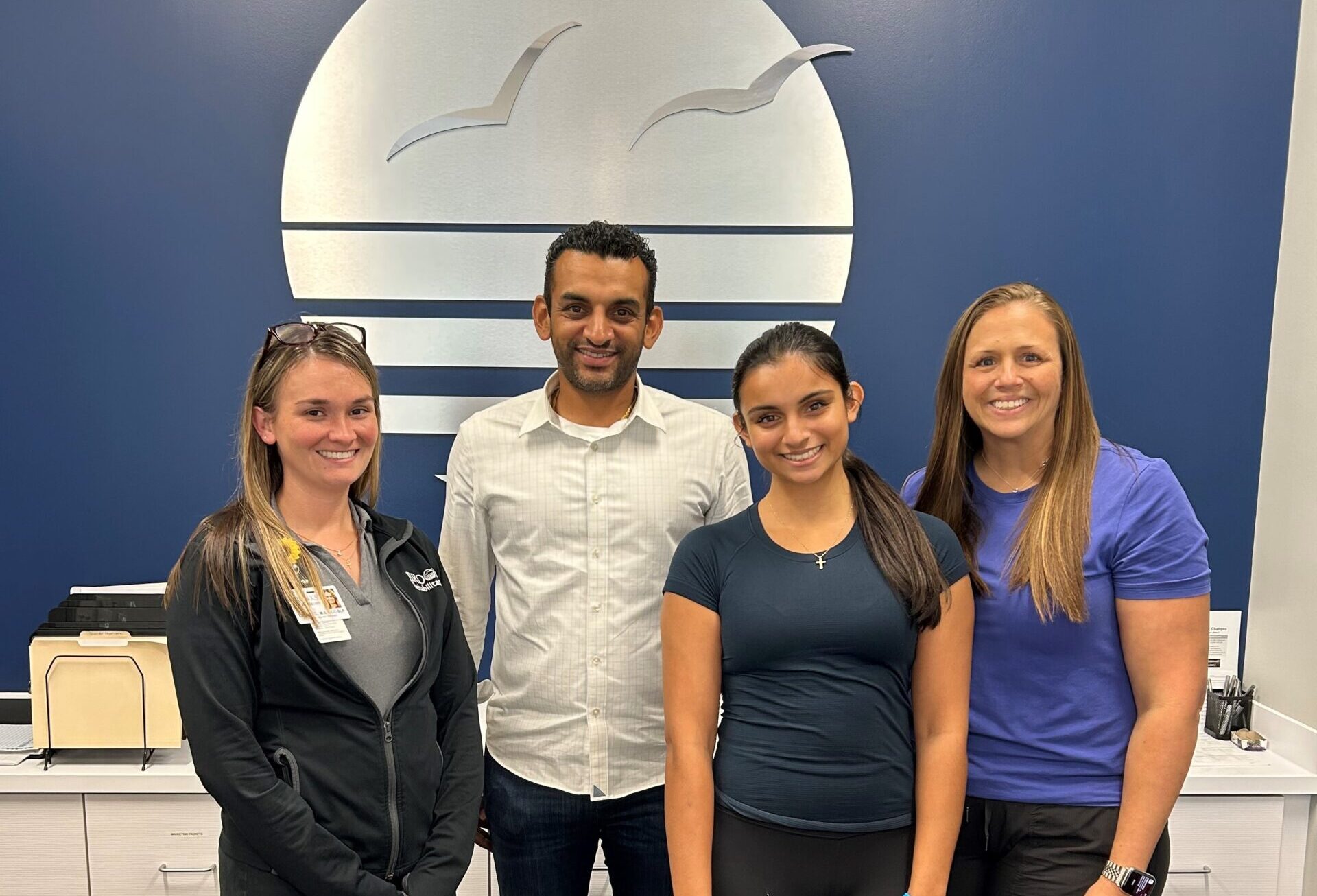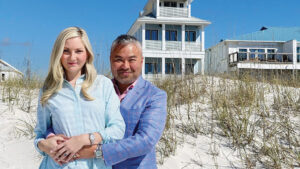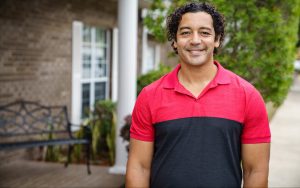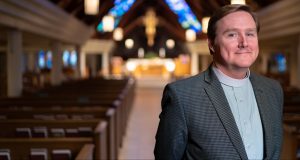From Silence to Strength: Chloe’s Inspiring Aphasia Recovery Journey

Back to physical health resource hub
How a high school senior’s determination and expert speech therapy helped her reclaim her voice after a life-changing diagnosis.
One year ago, 17-year-old Chloe Karamsodkar was a competitive swimmer preparing for her senior year of high school, with dreams of going to college and studying criminology. Today, she’s still graduating with her class—but her path to this milestone has been extraordinary.
On May 10, 2024, a seizure changed everything. What began as a frightening medical emergency led to a diagnosis of autoimmune encephalitis, a rare brain inflammation that temporarily paralyzed Chloe’s right side and severely impacted her ability to speak. The condition resulted in Broca’s aphasia, making it difficult for her to find and express words despite knowing exactly what she wanted to say.
When Words Disappear
After extensive medical treatment, Chloe’s family began searching for specialized outpatient speech therapy. Their research led them to Brooks Rehabilitation’ outpatient clinic in Clermont, Florida, where they found Lindsey Cobb, M.S., CCC-SLP, a speech-language pathologist who would become instrumental in Chloe’s remarkable recovery.
“In the beginning, Chloe’s parents were talking for her,” recalls Cobb. “She had difficulty with basic directions and couldn’t verbally identify common items around her. She understood everything being said, but her brain had difficulty expressing thoughts or forming sentences.”
The journey began with the most fundamental communication skill: learning to answer yes or no questions. For an outgoing, athletic and academically gifted teenager, this represented a profound challenge. Chloe’s communication was reduced to telegraphic speech—missing articles and verb tenses—and she struggled to describe even simple activities like what she did over the weekend.
Her father, Remmal, describes the early days as being difficult and frustrating. “She knew words but couldn’t verbalize them. For example, when she tried to communicate with us about cooking, she could only say ‘meat, noodles’ when describing what we were making together.”
The Science of Recovery
Cobb developed a comprehensive treatment plan that addressed Chloe’s specific type of aphasia. “Chloe developed Broca’s aphasia, which is an expressive type of aphasia,” she explains. “Her language comprehension was preserved, but she had significant difficulty speaking fluently. Most of her verbal expression was three words or less initially.”
The therapeutic approach combined evidence-based practices with innovative technology. Semantic Feature Analysis helped Chloe systematically describe objects by focusing on their properties and meaning. Verb Network Strengthening Treatment (VNeST) challenged her to work with verbs, identifying who performs actions and what those actions affect.
Technology became a bridge to communication. In the earliest stages, Chloe relied on predictive text to communicate with her parents, teachers and therapists. As she progressed, she used a C-Pen reading device at school and various speech therapy apps for homework practice, including Advanced Language Therapy for spelling and sentence formation.
Milestones and Breakthroughs
Recovery from aphasia is measured in small victories that represent enormous personal triumphs. For Chloe, these milestones painted a picture of gradual but consistent progress:
- Learning to answer orientation questions about her birthday, the current month and her address
- Following multi-step directions
- Identifying body parts and common environmental objects
- Describing what was happening in pictures
- Eventually forming complete sentences with minimal cues
By January, about eight months into her recovery, Chloe experienced what she describes as a turning point. “It was around that time when I remember making huge improvements in my sentences,” she reflects.
The most meaningful breakthrough for Cobb wasn’t clinical—it was personal. “The other day she said to me, ‘I need to tell you something, I’m having a graduation party at my mom’s house and I want you to be there.’ That spontaneous, complex communication showed how far she had come,” Cobb recalls with pride.
Balancing Recovery and Real Life
Remarkably, Chloe never missed school during her recovery. Through Brooks Rehabilitation’s School Re-entry Program, she completed her entire senior year while attending speech therapy three days per week.
The school environment presented unique challenges. Teachers initially struggled to understand that Chloe’s difficulty wasn’t a lack of comprehension, but rather an inability to express what she knew. A Brooks Rehabilitation School Re-entry Program specialist worked as a liaison between Chloe, her medical team and the school to provide education about aphasia and implement appropriate accommodations, including extended time for tests, alternative presentation formats and a full-time tutor.
“The most challenging part is overcoming what happened, but staying busy and focused has kept me going and determined,” Chloe explains. Her academic achievements during recovery are a testament to this determination: completing math at grade level, earning a perfect score on an English paper and successfully managing online science courses that required extensive writing.
The Power of Community
Chloe’s recovery wasn’t a solitary journey. Her sister, who found her unconscious in her bedroom that frightening day, stepped into a protective big sister role, driving Chloe to appointments and providing emotional support. Two close friends, Elena and Tallie, remained loyal throughout the process, learning to understand and accommodate Chloe’s communication challenges.
“Friends were actually easier to deal with than teachers,” Chloe notes. “Now they understand what I’ve gone through.”
The impact extended beyond her immediate circle. As word of Chloe’s journey spread, many people reached out to share how her strength and response to adversity had influenced their own lives.
Looking Forward
Today, with approximately 75% of her speech recovered, Chloe is preparing for the next phase of her journey. After graduation, she’ll participate in an intensive six-week program at the University of Central Florida’s Aphasia House, which is similar to the Intensive Comprehensive Aphasia Program (ICAP) offered at the Brooks Rehabilitation Aphasia Center in Jacksonville. There Chloe will be focusing on spelling, morphology and advanced language skills to prepare for college.
Her goals have evolved but remain ambitious. Chloe plans to attend the University of Central Florida to study criminology, with the ultimate goal of writing a book about her experience. “I think sharing my story as much as I can will help others overcome similar situations,” she says.
A Message of Hope
As Chloe prepares to walk across the stage at graduation, her journey from silence to strength offers hope to anyone facing communication challenges or supporting a loved one through recovery. Her story demonstrates that with the right combination of expert care, family support, personal determination, and comprehensive rehabilitation services, remarkable recovery is possible.
When asked for advice for others facing similar challenges, Chloe’s response reflects wisdom beyond her years: “Be strong and competitive. Be resilient. Don’t dwell on the past. The future holds us.” Her philosophy of maintaining positivity and avoiding negativity has been central to her recovery.
How Brooks Can Help
If you or a loved one is facing communication challenges following a stroke, brain injury, or other neurological condition, Brooks Rehabilitation’s aphasia experts can help.
Brooks speech-language pathologists, located throughout North and Central Florida, provide comprehensive evaluation and treatment services. Through our specialized Aphasia Center in Jacksonville, Zoom support groups and an aphasia conversation group in Orlando Florida, we leverage the latest research and recovery to enrich communication skills, provide support and education to help you achieve your highest level of recovery and participation in life. Contact us to learn more about how we can support your recovery journey.


